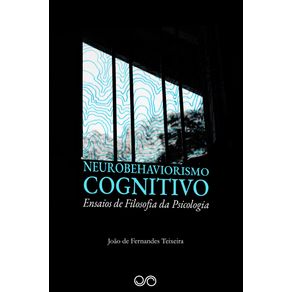-
DEPARTAMENTOS
- ANIMAIS DE ESTIMAÇÃO
- ARTES
- AUTO AJUDA
-
BEM ESTAR E LAZER
-
CATEGORIAS
-
-
CULINÁRIA E GASTRONOMIA
-
CATEGORIAS
-
-
ESPORTES
-
CATEGORIAS
-
- INFANTIL
-
RELIGIÃO
-
CATEGORIAS
-
- ADMINISTRAÇÃO E NEGÓCIOS
-
CIÊNCIAS BIOLÓGICAS E NATURAIS
-
CATEGORIAS
-
- DIREITO
- ECONOMIA
-
MEDICINA
-
CATEGORIAS
-
-
TODOS DEPARTAMENTOS
-
INTERESSE GERAL
-
LIVROS TÉCNICOS
-
- DISCIPLINAS
- ACESSÓRIOS
- FORMATURA
- PAPELARIA
Beyond the Century of the Child
Cód:
491_9780812237047
Beyond the Century of the Child
Autor:
Editora:
Código:
491_9780812237047
Vendido e entregue por Um Livro
Beyond the Century of the ChildCultural History and Developmental PsychologyEdited by Willem Koops and Michael ZuckermanThis volume offers readers a brilliant and thought-provoking symposium on historical aspects of childhood, of conceptions and arrangements of childhood, and of the study of child development itself.--American Journal of PsychologyIn 1900, Ellen Key wrote the international bestseller The Century of the Child. In this enormously influential book, she proposed that the worlds children should be the central work of society during the twentieth century. Although she never thought that her century of the child would become a reality, in fact it had much more resonance than she could have imagined.The idea of the child as a product of a protective and coddling society has given rise to major theories and arguments since Keys time. For the past half century, the study of the child has been dominated by two towering figures, the psychologist Jean Piaget and the historian Philippe Ariès. Interest in the subject has been driven in large measure by Arièss argument that adults failed even to have a concept of childhood before the thirteenth century, and that from the thirteenth century to the seventeenth there was an increasing childishness in the representations of children and an increasing separation between the adult world and that of the child. Piaget proposed that childrens logic and modes of thinking are entirely different from those of adults. In the twentieth century this distance between the spheres of children and adults made possible the distinctive study of child development and also specific legislation to protect children from exploitation, abuse, and neglect. Recent students of childhood have challenged the ideas those titans promoted; they ask whether the distancing process has gone too far and has begun to reverse itself.In a series of essays, Beyond the Century of the Child considers the history of childhood from the Middl
Veja mais

































